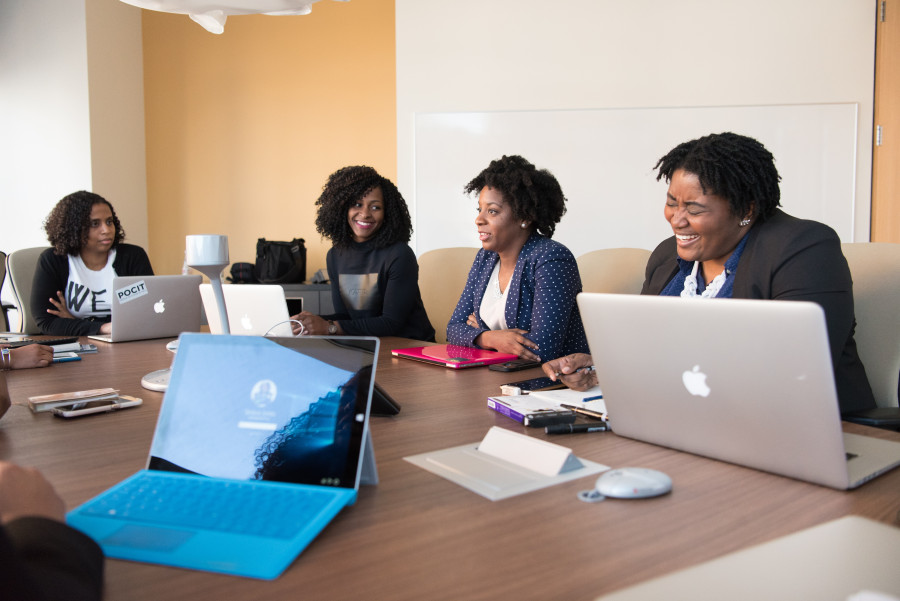This excellent Kendrick Lamar line is crucial for us in the Black community. It’s an acknowledgment that we, as Black folk, cannot enjoy our work until we gain autonomy.
You cannot tell Black youth to succeed in a company that is hostile to them any easier than you can tell a seed to sprout in unwholesome soil. If we want to create spaces that help Black people thrive, we must consider how an ecosystem best suited to us as a social group must act. That could mean working in a space where you can freely wear your hair or express your opinions fully.
Black Canadians come from different regions, lifestyles and cultures, which means solutions must look at Black intersections. For example, if we create employment policies for Black youth, we must look at immigration and education; when we want to improve business conditions, we also must look at healthcare. By involving all Black groups in conversations around employment we can meet the needs of diverse Black youth.
A Black ecosystem is building that unlike before, encompassing all Black Canadians. Through exploring these institutions it is my hope that we can better understand our collective similarities and differences so that Black issues are immigration issues, housing issues and so on. Afterwards, we can go into the June 26th election with a voice so loud that no one can ignore it. Kema Joseph from the Toronto Star put it best: “The election is arguably the greatest test yet of the political maturity of Toronto’s Black communities.”
I was privileged enough to sit and talk to Christopher Duff, executive director of the Canadian Council for Youth Prosperity (CCYP). The group, which focuses on employment opportunities for Canada’s youth, inaugurated its Black Seeds Ecosystem program.
The new initiative aims to help Black youth through collaborative sharing with B3 organizations (Black-led, serving and focused). In the wake of glaring research on the plight of Black youth in employment, Black Seed hopes to support nonprofit organizations directly supporting Black youth to find meaningful work. The initiative is about creating networks and linkages around increasing resiliency in Black Youth and giving them tools to thrive in an employment space that is often maligning or outright hostile to them.
{https://www.instagram.com/p/CoyI-rPLrIi/}
So why the need for the Black Seed initiative? Well, it’s because Black youths are failing to find meaningful employment even after doing everything right. Black unemployment for youth aged 15 to 24 is 23.1%, compared to 15.5% for the general population. During the pandemic, Black youth unemployment skyrocketed to over 30%, while it was 15% for other non-visible minority youth.
Mind you, Black education rates are comparable or greater than other groups; 4.9% of Black people have post-graduate degrees vs. 4.7% of their white counterparts. So if education is supposed to lead to jobs, why are we seeing such wide disparities for Black youth?
It is difficult for Black youth to know that they are being discriminated against, but it shows in statistics. According to Duff, discrimination in the hiring process is a big one. “There was a study on employer responses to resumes with African vs Franco-Quebecois last names. The former were called back 38% more times than those with African names.”
Getting an interview is often a token gesture to get that DEI checkmark. But let's say you get the job, it only gets worse. Over 90% of Black respondents said they experienced workplace racism. This exists at all levels. Even former Liberal MP and current Toronto mayoral candidate, Celina Caesar-Chavannes, has had to deal with racism from our own prime minister. She left her role with the Liberals to escape the daily dose of racism.
Black youth with a much lower profile must contend with the same problems, which is mentally draining. The research reveals that many Black youths called for mental health support for both their personal and professional lives. The mental health problems related to workplace racism have systemic effects on individuals and societies. Christopher was quick to note that these are not solely Black issues but problems that will drag down the Canadian economy today and in the future.
“The median age for the Black population in Canada is 29, while it is 41 for everyone else. If the barriers to employment are not resolved for young people, imagine the broader implications in the future. Black youth are an economic engine for Canada, and if we set them back, it won't work out for anyone.”
So how does Black Seed plan to help Black youth deal with the pressures of the working world?
Using data from several sessions with Black youth, B3 organizations and other stakeholders, the CCYP found three intervention points to help youth thrive in the workplace first through professional exploration in the youth job search process. By tooling B3 groups with resources that help Black youth find suitable work, they can assist job-stressed youth in finding the perfect job for them. It’s not just about finding any job; the focus is on quality too.
The next was professional development: in work experiences. The Black Seed initiative can help others navigate the work world better by focusing on those who have jobs. Finally, and maybe most important, is professionalism in the workplace from a Black lens. This includes helping Black youth deal with microaggressions and other forms of racism that impact mental health. Through their toolkit, the CCYP enables B3 groups to respond to Black youth needs around employment, and feelings of safety. It’s a practice of Black resiliency through knowledge mobilization and sharing.
“Our goal is not to dismantle racism; that can come later. Right now, we are trying to equip B3 organizations to help youth today as they transition into the workforce.”
But what about the future? Duff is as forward-thinking as anyone.
“If we can build a groundswell of B3 groups over a year, that collective voice can challenge some of these systemically racist practices much more than one organization doing it. That is a part of our calculus.”
The CCYP offers all their services to B3 organizations for free and is self-funded through realigning budgets from other avenues.
“We can become the intermediary and take away some of the costs for B3 organizations and provide them support.” Duff continues.
As the seed to this shifting soil, the work done by the CCYP is a step into a new Black ecosystem and a boon for the resiliency of Black youth.

 By
By 








